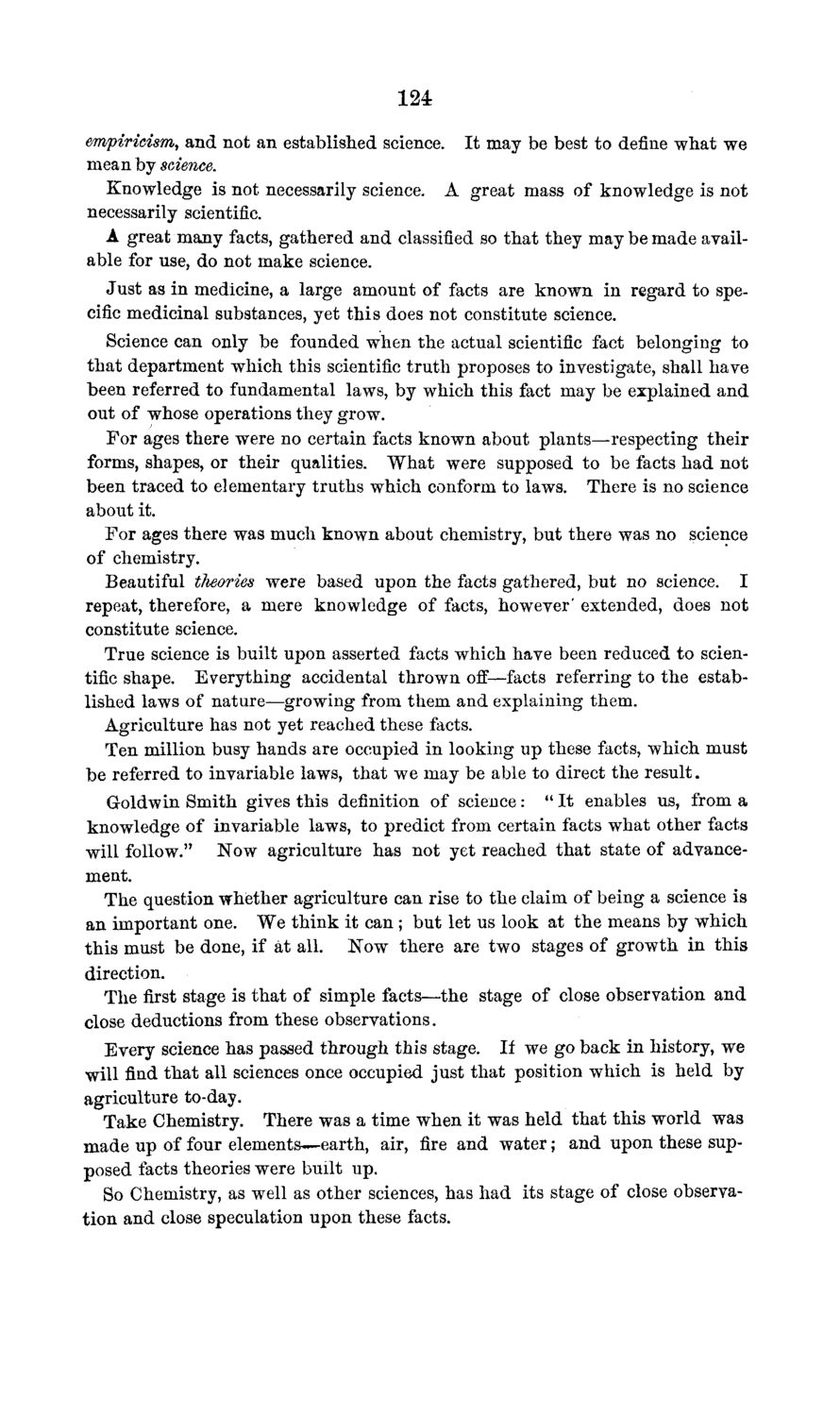| |
| |
Caption: Board of Trustees Minutes - 1869
This is a reduced-resolution page image for fast online browsing.

EXTRACTED TEXT FROM PAGE:
124 empiricism, and not an established science. It may be best to define what we mean by science. Knowledge is not necessarily science. A great mass of knowledge is not necessarily scientific. A great many facts, gathered and classified so that they may be made available for use, do not make science. Just as in medicine, a large amount of facts are known in regard to specific medicinal substances, yet this does not constitute science. Science can only be founded when the actual scientific fact belonging to that department which this scientific truth proposes to investigate, shall have been referred to fundamental laws, by which this fact may be explained and out of whose operations they grow. For ages there were no certain facts known about plants—respecting their forms, shapes, or their qualities. What were supposed to be facts had not been traced to elementary truths which conform to laws. There is no science about it. For ages there was much known about chemistry, but there was no science of chemistry. Beautiful tlieories were based upon the facts gathered, but no science. I repeat, therefore, a mere knowledge of facts, however' extended, does not constitute science. True science is built upon asserted facts which have been reduced to scientific shape. Everything accidental thrown off—facts referring to the established laws of nature—growing from them and explaining them. Agriculture has not yet reached these facts. Ten million busy hands are occupied in looking up these facts, which must be referred to invariable laws, that we may be able to direct the result. Goldwin Smith gives this definition of science: " It enables us, from a knowledge of invariable laws, to predict from certain facts what other facts will follow." Now agriculture has not yet reached that state of advancement. The question whether agriculture can rise to the claim of being a science is an important one. We think it can ; but let us look at the means by which this must be done, if at all. Now there are two stages of growth in this direction. The first stage is that of simple facts—the stage of close observation and close deductions from these observations. Every science has passed through this stage. If we go back in history, we will find that all sciences once occupied, just that position which is held by agriculture to-day. Take Chemistry. There was a time when it was held that this world was made up of four elements—earth, air, fire and water; and upon these supposed facts theories were built up. So Chemistry, as well as other sciences, has had its stage of close observation and close speculation upon these facts.
| |